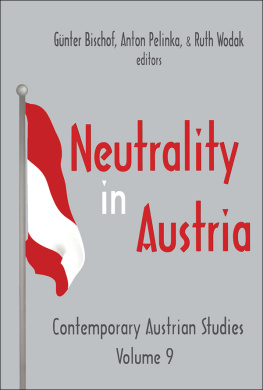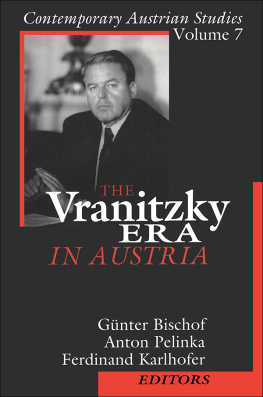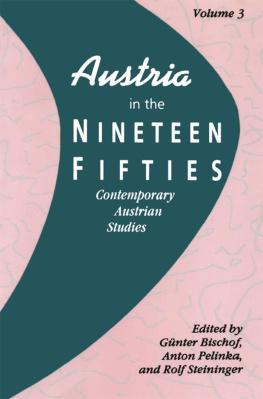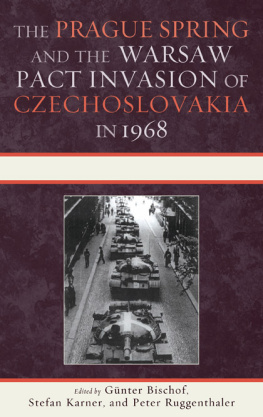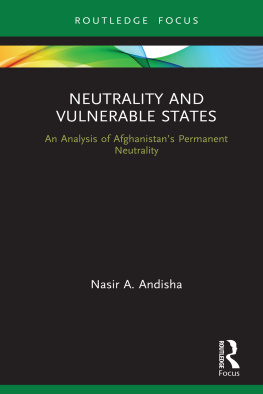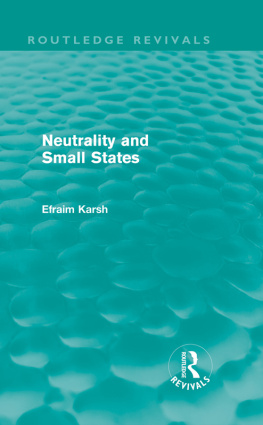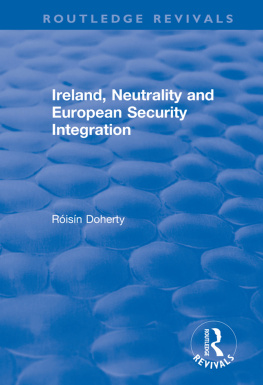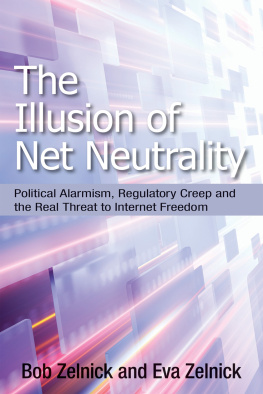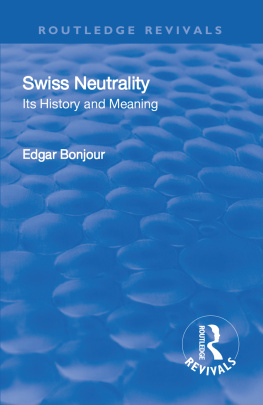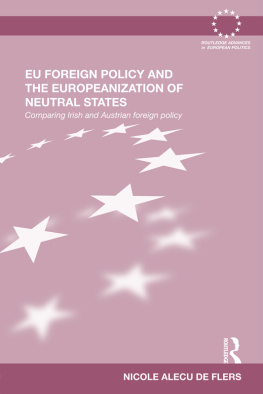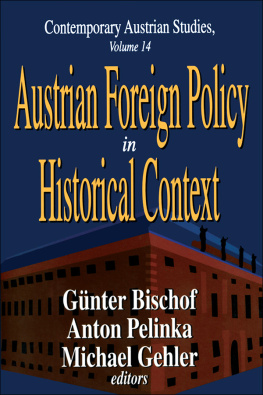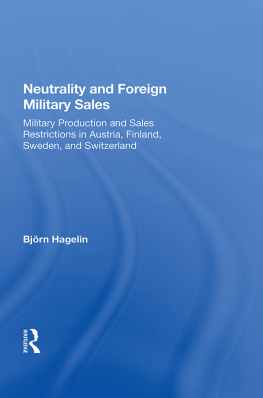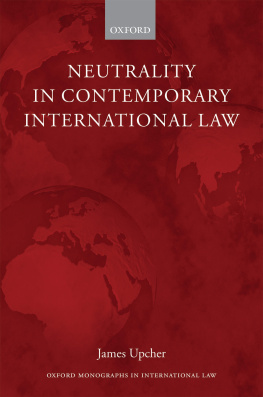Introduction
This special issue is the result of many debates about neutrality and the relevance of neutrality in Austria as well as in other neutral states, now belonging to the European Union.
Neutrality in Austria has a long and complex history: First, it was seen as something which was accommodated to please the Allied Forces. Slowly, neutrality became integrated into Austrias official identity. And nowadays, it is very positively connotated for many, emotionally laden for all, although very few know what it actually means and entails. The recent debates in the media and the discussion about European Security Policies as well as the meaning neutrality acquired for the main political parties in Austria, were the reason for a research project, undertaken in the Wittgenstein Research Center Discourse, Politics, and Identity, in the years 1997 1999. The project is interdisciplinary in nature, and the team consisted of political scientists, sociologists, historians, and linguists (see Liebhart and Benke/Wodak in this volume). The project on Discourses on Neutrality is the continuation of another study on the Discursive Construction of National Identity (Wodak et al. 1999), which showed that the issue of neutrality was functionalized for many political goals at different times during the past forty-five years, the Second Austrian Republic.
Our study used the discourse-historical approach: on the one hand, debates in the media and political speeches were studied (on Austrias National Day, 26 October), on the other hand, interviews and focusgroups were installed to investigate private and semi-private beliefs and opinions. The confrontation of these different and distinct public spaces made it possible to study the recontextuliazation of the meanings of neutrality and the ideologies involved. Specifically, it was also possible to interview two former Austrian presidents, who had both been involved with the creation and implementation of neutrality in 1955: Rudolf Kirchschlger and Kurt Waldheim. Their speeches were also analyzed, and thus self- and other assessment could be contrasted and analyzed: the reporting about the speeches, and the speeches themselves. The linguistic analysis makes hidden and coded meanings and connotations visible and demonstrates the different usage of neutrality throughout the years and in different phases of Austrian Foreign Policies.
Recently, neutrality has gained new prominenceand has produced a new paradoxon. In 1999, the war in Kosovo and former Yugoslavia has created a popular wave in favor of neutrality. More Austrians said yes to neutrality in public opinion polls than during the years before. The war in Austrias neighbourhood made clear what it would mean to belong to the North Atlantic Treaty Organization (NATO) and to have to send soldiers into battle. During the electoral campaign in summer 1999 the (old) coalition partners gained profile through different positions regarding Austrias neutrality: The SP wanted to preserve it as a symbol of Austrian identity as well as an instrument of a foreign policy focusing on peace without membership in a military alliance. The VP opted for a policy which should lead Austria into NATO. During the negotiations between SP and VP to reestablish their coalition in December 1999 and January 2000, the principal differences between the old partners regarding neutrality were visible, but not unbridgeable. A compromise which would have kept the future of neutrality open was already reached, when the negotiations broke down in spite of the agreement.
The coalition created on 4 February, 2000 is the alliance of two parties which aim openly at NATO-membership. This could have had an immediate impact on Austrias neutrality: The consensus between FP and VP to officially end Austrian neutrality by joining NATO is obvious. Paradoxically, an Austrian NATO-membership seems to be unintentionally prevented by this coalition, due to its composition. The sanctions, the EU-14 have started immediately as a response to the integration of the FP into the government, are a rehearsal for the (un)willingness of the leading Western powers to accept an Austria run by the Freedom Party. It would not be plausible for NATO-countries like Germany, France, Britain, Italy, or Spain (not to speak of non-EU members of NATO, like Canada, which have joined the EU-14 in freezing diplomatic relations with Austria), to boycott this Austrian government diplomaticallybut accepting it at the very same time as a member of NATO.

